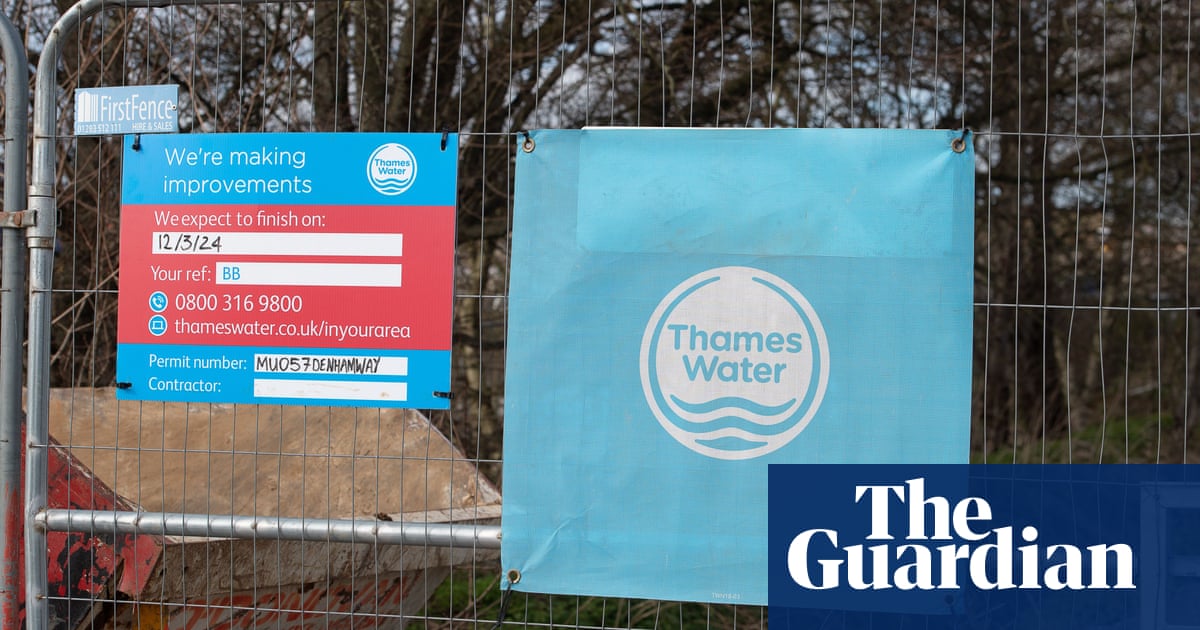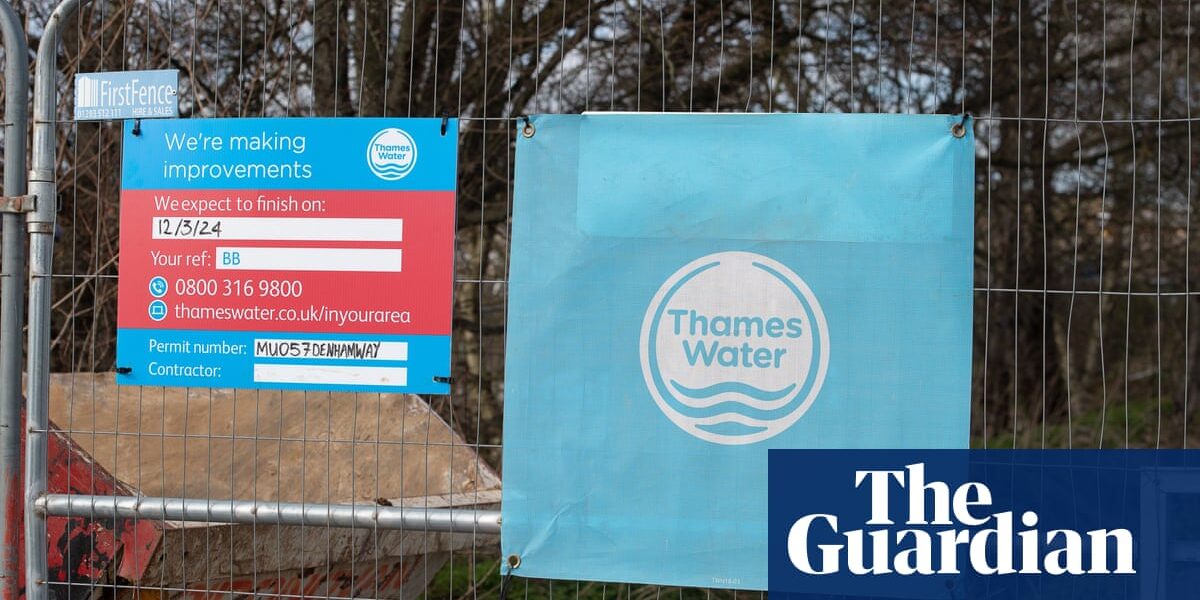Thames Water is not participating in the industry’s initiative to combat pollution, which has a budget of £180 million.

Thames Water is facing criticism for their lack of commitment to addressing sewage dumping. They have chosen not to contribute funds to a £180m program that aims to accelerate pollution reduction in England’s water system.
On Monday, the government announced that six companies will invest this amount in the next year to prevent over 8,000 sewage spills. This decision comes as water companies aim to improve their poor record in managing spills.
Unfortunately, despite having a significant debt of £14bn, the largest water company in Britain has chosen not to participate in the initiative. It is understood that government officials are disappointed in their decision.
According to reliable sources, Thames Water has confirmed that despite the government’s request, it is not able to expedite its planned £18.7bn investment between 2025 and 2030.
The financial state of Thames Water is currently being closely monitored due to a recent revelation that its parent company was cautioned by auditors about the possibility of running out of funds by April, should shareholders not provide additional resources. An outstanding £190m loan must be repaid by next month.
The previous month, it was disclosed that Thames had been petitioning government and regulators to raise bills by 40% and decrease penalties for violating sewage spill regulations in an effort to alleviate its financial troubles. The government has prepared backup measures in case Thames Water goes bankrupt.
Several companies have committed to the government’s accelerated investments, such as Anglian Water, which plans to spend £50m by April 2025. United Utilities and Severn Trent have also agreed to invest £39m and £41m, respectively, by the same date.
Southern Water plans to allocate £10 million, South West plans to allocate £32 million, and Wessex plans to allocate £8 million in investments.
The government announced that both Northumbrian and Yorkshire Water have independently unveiled plans to accelerate their investments of tens of millions of pounds in order to address storm overflows this year.
The funds will be used to install additional in-sewer monitors, hire additional personnel for the wastewater department, implement artificial intelligence technology to handle storm water levels, and speed up wetland projects.
Water companies are receiving additional funds, in addition to the already planned £3.1bn investment, to improve storm overflows by 2025. This is an effort to address the years of inadequate investment in the aging infrastructure of Britain.
In a letter distributed in December, the Secretary of the Environment, Steve Barclay, advised all water company leaders to expedite their efforts in addressing overflowing networks and work towards more significant improvements.
In 2022, water companies have sparked outrage among the public due to frequent sewage spills occurring nationwide. The Environment Agency reports that over 300,000 spills were recorded, equating to an average of 824 spills per day.
One of the main culprits, Thames Water, has 16 million customers and has been found to be one of the worst polluters. In the past year, it was discovered that the company had discharged a minimum of 72 billion litres of sewage into the River Thames, an amount equivalent to 29,000 Olympic-sized swimming pools. Furthermore, between 2017 and 2023, the Environment Agency fined Thames Water a total of £35.7m for pollution incidents.
Skip over the advertisement for the newsletter.
after newsletter promotion
Government officials are aiming to address the issue of underperforming sewage systems of water companies. They recently revealed a proposal to prohibit bonuses for executives who are unable to prevent unauthorized sewage leaks.
The government has announced that it will allocate additional funds to the Environment Agency in order to increase the number of water company inspections next year by four times.
According to Barclay, the investment of £180m is aimed at encouraging improved performance from water companies and ensuring they are held accountable.
He stated: “The level of sewage being released into our rivers is completely unacceptable and the citizens rightfully demand action. This funding will result in the implementation of advanced technology, such as artificial intelligence, and an increase in trained personnel to identify and prevent spills.”
Thames Water refused to provide a statement.
Source: theguardian.com



